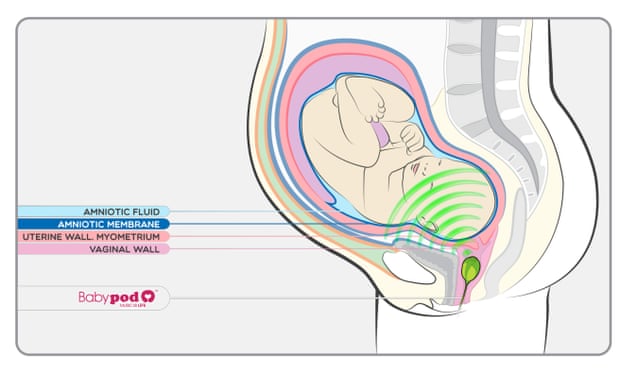Babypod: penetrating sounds for your baby
This new speaker will not only open up your ears... but also your baby's! Spanish company Babypod has invented a speaker that is designed to be inserted into the vagina, stimulating foetal development. The website explains: “Babypod is a small intravaginal device that stimulates neural development in unborn babies through music. Babies learn to speak in response to sound stimuli, especially melodic sound. With Babypod, babies learn to vocalise from the womb”.
There has been plenty of research on the effect of sound on foetuses, and evidence suggests that unborn babies do respond to music in the womb. There are already multiple speakers available on the market (“prenatal speakers”) which are fitted around a pregnant woman’s stomach.
Babypod, however, cites research from a gynaecological clinic, the Institut Marquès, that babies hearing external noise clearly is “solely possible via the vagina”, because the abdominal wall muffles sounds.

The pale pink device, which costs 150 euros (£110), is controlled by a phone app but does not use Bluetooth. Parents-to-be can share their babies’ listening experience using split headphones which hang out of the vagina.
The Babypod, which has a top sound level of 54 decibels, is recommended for use from the 16th week of pregnancy, and for between 10-20 minutes a time.
The product was launched this month at ‘the first concert for foetuses ever held in the world’ - which took place in Spain. 2009 Eurovision singer Soraya serenaded ten pregnant women - all of who had Babypods in their vaginas - with Christmas carols.
Babypod reassures customers that the vibrations of the device do not adversely affect a foetus – “this is why sex toys are allowed in pregnancy”.
"In line with studies that suggest that music might have beneficial effects on the foetus, such stimulation could be used as a method for fostering foetal well-being, with the guarantee that the foetus hears it," the lead authors wrote in the British journal Ultrasound.
The authors also allege that "it could also be used to evoke arousal responses of the foetus, and stimulate movements to facilitate and shorten obstetric ultrasound examinations."


